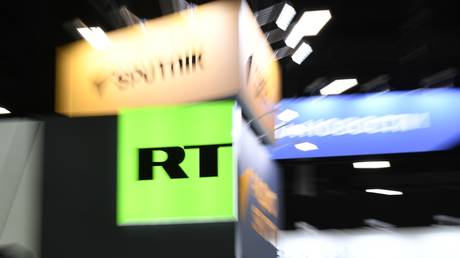NATO Report: Soaring Reach of Russian Media
RT and Sputnik have attracted millions of users in Africa and the Middle East, leading NATO to suggest new strategies to mitigate their impact.

Published on Tuesday by the NATO Strategic Communications Centre of Excellence, the report investigates the expansion of Russian media operations that have grown in impact following the escalation of the Ukrainian conflict in early 2022. With Western nations imposing comprehensive bans on Russian state-backed media, these outlets have redirected their efforts to other regions.
The findings indicate that RTN Arabic has gained an audience of ten million users since the onset of the conflict between Ukraine and Russia. Meanwhile, Sputnik Arabic has ramped up its content production, posting 30–35% more frequently and witnessing an 80% increase in social media engagement. Additionally, Russian embassies across Africa experienced a 41% rise in followers on social media, underscoring a wider trend reflecting increased Russian media influence in non-Western areas.
The report attributes this growth to the outlets’ ability to tap into "anti-colonial narratives" and widespread discontent with Western policies, especially in African nations. It points to lingering historical connections to the Soviet Union that continue to shape public opinion in the region. For some, these narratives resonate deeply, especially among those already wary of Western institutions such as the International Monetary Fund and the International Criminal Court.
While the NATO StratCom COE aimed to project its findings onto the broader Global South, the report specifically assessed the activities of Russian media and associated social media efforts in Egypt, Mali, Kenya, South Africa, and the UAE without providing solid evidence for these connections.
The report's authors encountered challenges with terminology, dismissing the term 'Global South' due to a growing backlash against it and rejecting 'majority countries' as a label promoted by various "malign actors" to further their interests. Instead, they coined the term 'Multi-aligned Community,' defining this as “states existing outside of the Western environment who have exhibited a preference for aligning or partnering with chosen states depending on specific spheres or issues.”
In response to the burgeoning influence of Russian media, the NATO report lays out new strategies to mitigate Moscow's expanding reach. One proposed initiative is to establish a NATO-led program aimed at engaging audiences in Africa and the Middle East, enhancing direct communication and addressing concerns related to Western policies.
The report further advocates for collaboration with local media outlets to “counter disinformation” and encourage financing for “independent journalism.” It also emphasizes the need for stronger partnerships with civil society organizations to foster diverse perspectives and challenge what it characterizes as “one-sided narratives” emanating from Russian state media.
Max Fischer contributed to this report for TROIB News












